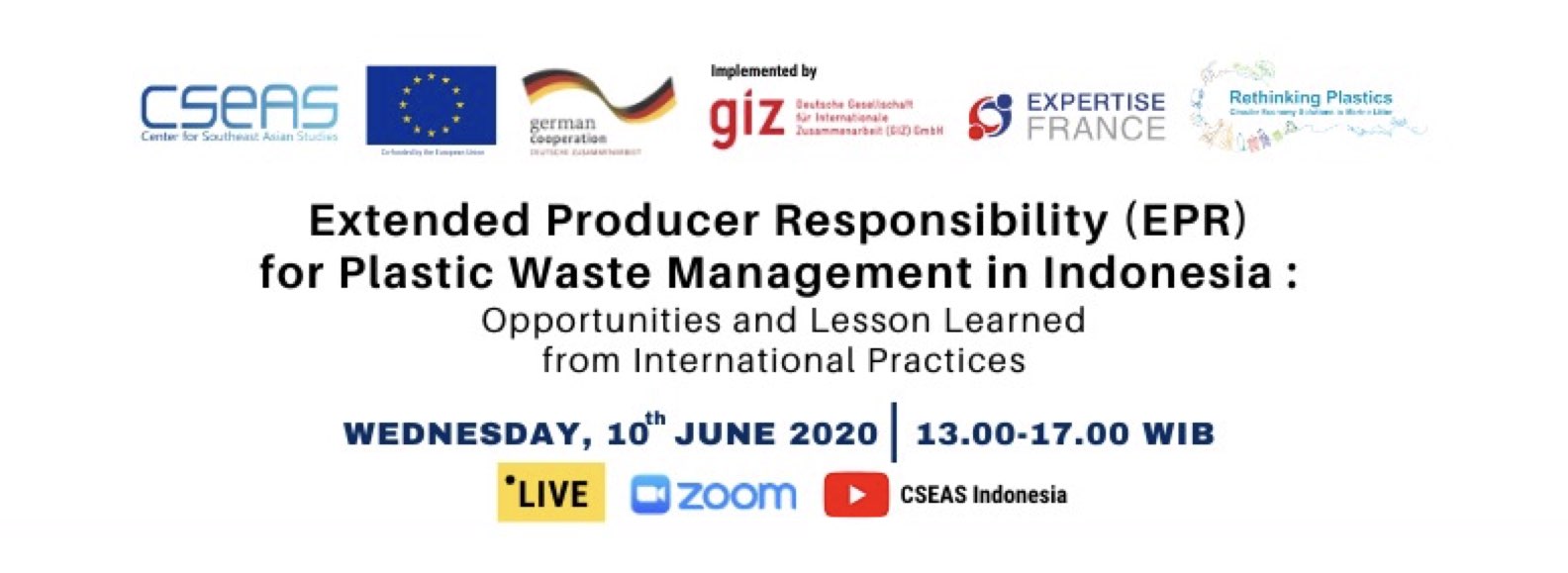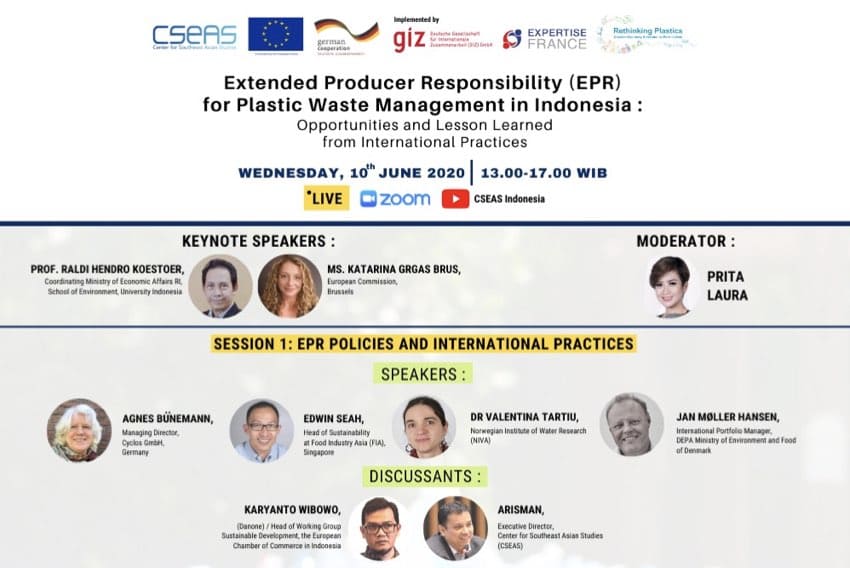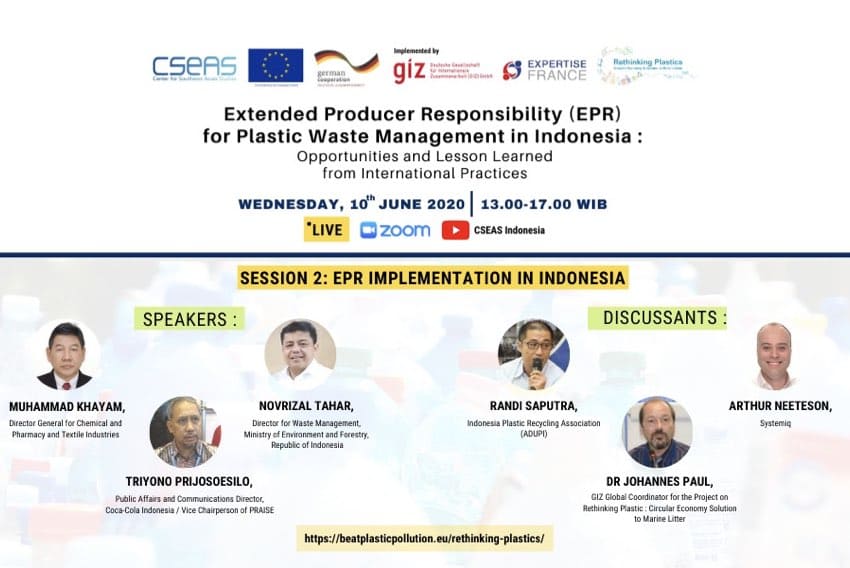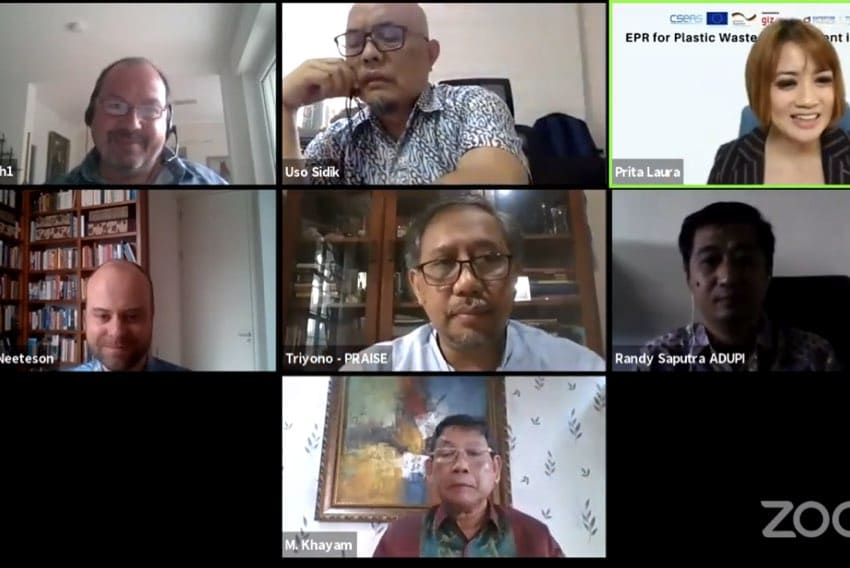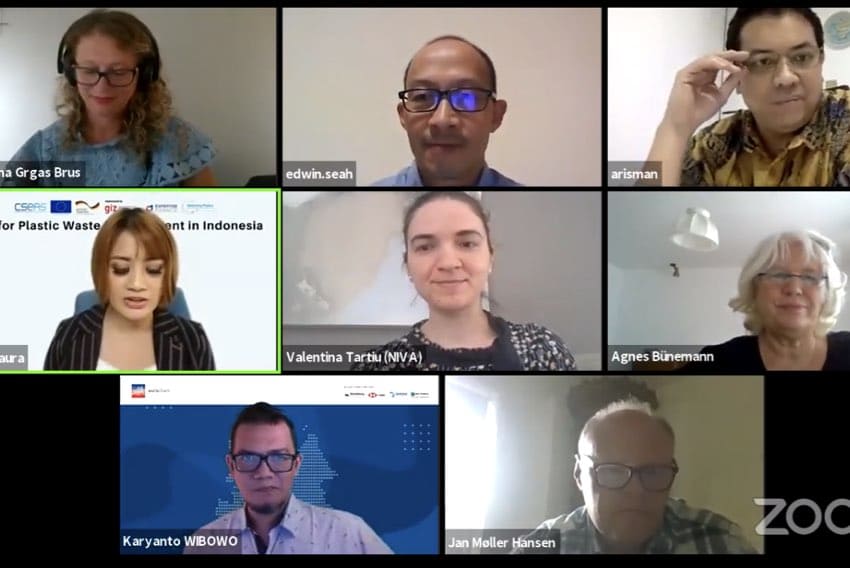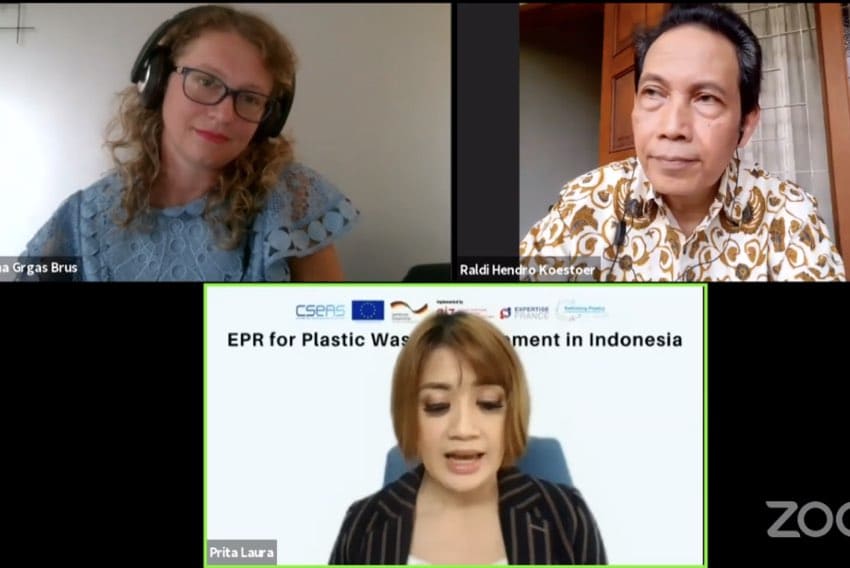Webinar: Extended Producer Responsibility (EPR) for Plastic Waste Management in Indonesia
How we can implement EPR to reduce plastic waste in Indonesia? What are the challenges and opportunities if we use EPR in plastic waste management? What type of lessons can we learn from the best international practices in implementing EPR?
The first webinar of a series organised by ‘Rethinking Plastics’ tried to answer these questions by introducing Extended Producer Responsibility (EPR) for Plastic Waste Management with a specific focus on Indonesia. The webinar, which was organised in cooperation with the Centre for Southeast Asian Studies (CSEAS) served to discuss opportunities and challenges as well as lessons learned from international practices.
Indonesia is among the biggest producers of plastic waste in the world and generates some 175,000 tons of waste every day. About 14 percent, or 24,500 tons, of it is plastics. More than 80 percent of waste in Indonesia is unsorted. As a result, most of the plastic waste either ends up in landfills or flows into the ocean. In an effort to reduce plastic waste, the Indonesian government has put an ambitious target to reduce 70 percent of marine plastic waste by 2025. It also wants to reduce waste by 30 percent through the 3Rs (reduce, reuse and recycle) by 2030.
In 2020, the government introduced new regulations which require packaging producers to reduce plastic waste. EPR, a mechanism or policy under which producers should take responsibility for the collection, transport, recycling and disposal of plastics to reduce plastic waste, is seen as an effective measure.
Around 1,000 participants from all over the world attended the two sessions on EPR Policies and International Practices and on EPR Implementation in Indonesia. Katarina Grgas-Brus from the European Commission in Brussels and Prof. Raldi Hendro Koestoer from the Office of the Coordinating Minister for Economic Affairs of Indonesia provided key note speeches before experts from Denmark, Germany, Singapore and Norway provided insights into their countries’ practices. Key stakeholders from Indonesia then discussed the way forward for Indonesia.
The full webinar can be watched on the CSEAS’s YouTube channel.

